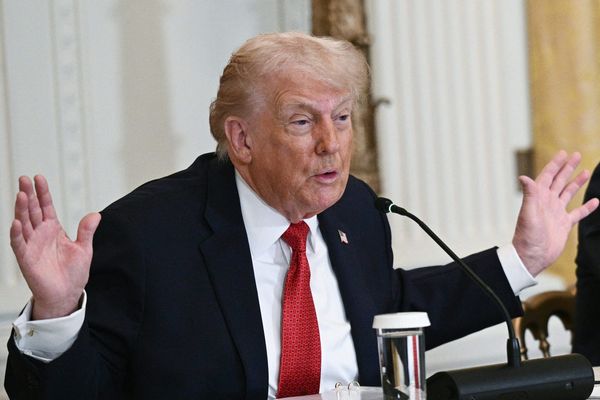
Indonesia's Defense Minister Prabowo Subianto has emerged as the apparent victor in the country's presidential election, receiving congratulations from foreign leaders. However, concerns have been raised by rights activists, who view his role as a potential threat. Despite Subianto's victory, his governing style and policies remain uncertain as his campaign made few concrete promises apart from continuing the successful initiatives of the outgoing president.
At 72 years old, Subianto is a former general who has never held an elected office. He will now lead Indonesia, a sprawling and diverse nation whose economy has experienced significant growth due to global demand for its abundant natural resources. However, he will face challenges such as global economic distress and regional tensions, including territorial conflicts and the ongoing US-China rivalry that loom large in Asia.
Subianto's victory in the election marks a notable comeback for him. He was previously expelled from the Indonesian army over allegations of torture against dissidents and faced travel bans to the United States and Australia for several years. Nevertheless, he declared victory after unofficial tallies by polling agencies showed him with a significant lead over his two rivals. If the official count confirms his win, he will assume office in November.



During his campaign, Subianto pledged to continue the modernization efforts of the outgoing President Widodo, which have boosted Indonesia's economic growth through infrastructure development and leveraging its rich resources. One of Widodo's key policies required local processing of nickel, a major Indonesian export and a vital component of electric vehicle batteries, instead of exporting it raw. Subianto has also expressed his commitment to pursuing Widodo's ambitious and controversial project of building a new capital on the frontier island of Borneo.
Subianto's background and personality present a sharp contrast to his popular predecessor. Known for his temper, discomfort with criticism, and fiery speeches, Subianto comes from one of the country's wealthiest families, with his father having served as a minister under both the authoritarian Suharto regime and Indonesia's first president, Sukarno. In contrast, Widodo rose to the presidency from a humble background and was known for mingling with working-class crowds and journalists.
The response of Subianto to political dissent, street protests, and critical journalism remains uncertain. However, for now, he appears to enjoy widespread support, as unofficial results indicate that he secured over 55% of the vote in a three-way race, eliminating the need for a runoff election.
While many individuals have welcomed Subianto's victory, activists have voiced concerns about his ties to the brutal authoritarian regime of Suharto, particularly as Suharto's daughter was once married to Subianto. Amnesty International's executive director in Indonesia warns of potential threats to human rights, emphasizing the importance of building structural conditions that protect opposition voices, freedom of expression, and the integrity of the election system.
In terms of foreign policy, analysts predict that Subianto will likely continue Widodo's approach, maintaining ties with both Beijing and Washington while avoiding alignment with either power. This balancing act has facilitated substantial Chinese trade and investment in Indonesia, including the funding of a $7.3 billion high-speed railway, while also enhancing defense ties and military exercises with the United States during Subianto's tenure as defense chief.
Leaders of several countries, including Australia, Singapore, and Malaysia, were quick to offer congratulations to Subianto on his expected victory. Prime Minister Anthony Albanese of Australia expressed his ambition for the future of Australia-Indonesia relations in a conversation with Subianto, underscoring the enduring diplomatic ties between the two nations. The US State Department, while refraining from mentioning Subianto directly, commended Indonesians for their strong voter turnout and celebrated the longstanding diplomatic relations between the US and Indonesia.
As Indonesia transitions to a new presidency, the coming months will reveal Subianto's approach to governance, policy implementation, and his ability to address the various challenges that lie ahead for the world's third-largest democracy.







